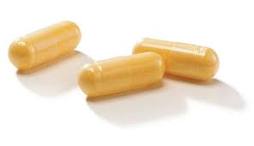
One of the most frequent search terms bringing readers to this blog is"coenzyme Q10". I wrote a research-based post a little while ago exploring its use in addressing infertility.
Recently, my cat was diagnosed with cardiomyopathy and congestive heart failure, and since coenzyme Q10 was the most frequently recommended natural supplement for these conditions, I had the opportunity to look at this compound as a health store shopper might. Here are some basic recommendations for choosing your brand and incorporating it into your program.
Coq10 can interact with many different types of medications, including: chemotherapy agents, statins, blood pressure medications, blood thinners, and beta-blockers. Therefore, it is important if you are on ANY of these medications that you do not use coq10 without first discussing it with your prescribing physician(s).
Most of the coQ10 that you find in supplement forms is manufactured in Japan; it is made by fermenting beets and sugar cane with a special strain of yeast. If you would like to increase your dietary intake of this compound, the best sources are rice bran, soya beans, nuts (notably hazel and pistachio), fish (especially mackerel and sardines), sesame seeds, and certain vegetables (cabbage, spinach, potato, onion, carrot).
Coenzyme Q-10 is available in several forms: powder encased in a capsule, soft gels, and liquid. Each one is fine to use. The coQ10 form known as ubiquinol is apparently the highest quality, most biologically active form.
Because coQ10 is a fat soluble compound, it is best absorbed if taken with a fat-containing food.
As far as dosages go, it's not appropriate for us to make those recommendations here, as each of you has a different clinical situation requiring more personalization than that.
However, if you're interested in using this supplement and have the blessing of your caregivers to do so, hopefully these basic user recommendations will be helpful.